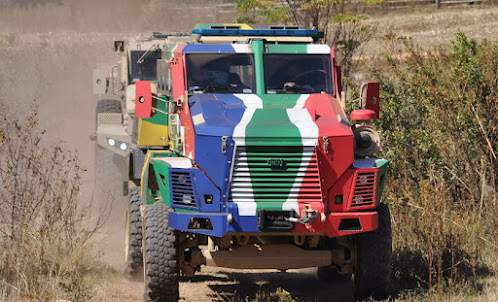Alternatieve financiering vanuit de Verenigde Staten?
Onze jarenlange oproep om de financiële markt bij de financiering van grote defensiesystemen te betrekken lijkt een vervolg te krijgen vanuit de Verenigde Staten.
Het Center for American Progress stelt in een advies aan president-elect Joe Biden:
Although member states agreed to increase defense spending at the Wales Summit, progress has been slow and sporadic, and a majority of NATO members were unlikely to hit the 2 percent pledge by 2024. This is even more unlikely now with the economic and budgetary fallout from COVID-19. Some NATO members may face severe budgetary shortfalls, making defense spending a potential target for budget cuts. To relieve this pressure, NATO members could use access to inexpensive financing to maintain their current defense spending levels.
There is a clear need for NATO to have greater access to resources to address gaps in capabilities, finance important alliancewide initiatives, ensure that it can rely on critical infrastructure, expand its influence, and compete with outside powers operating investment banks both within NATO and in regions vital to its core missions. To meet these goals, NATO must create its own bank. There are also clear gaps in the alliance’s existing defense financing instruments and institutions. A NATO bank would therefore complement, not compete, with these existing efforts and institutions. There is not a single MLI in existence that has the mandate to invest in defense and security. With this clear gap in the market, reducing conflict with other MLI mandates should be relatively straightforward. All of these deficiencies point to the need for NATO to create its own financial mechanism.
en dat is eenvoudig te realiseren:
To set up the bank, allies would make an initial investment. This could be done by simply mirroring the way in which NATO member states make contributions to organizations such as the World Bank and European Investment Bank. The amount that NATO member states are obliged to contribute could be determined proportionally by GDP, which is often how national contributions are determined in other multilateral organizations.
Het rapport gaat verder met te stellen dat de landen zouden moeten bijdragen aan de bank en dat die bijdragen meetellen voor de 2% norm. Dan lijkt het echter meer op het European Defence Fund en maakt het goedkoop kapitaal niet beter beschikbaar dan dat via een staatlening mogelijk is. Wij vinden dat de overvloed aan goedkoop marktgeld voor dit doel ingezet moet worden. Uiteraard op een goed beheersbare manier en onder strenge voorwaarden.
Lees het volledige rapport hier



